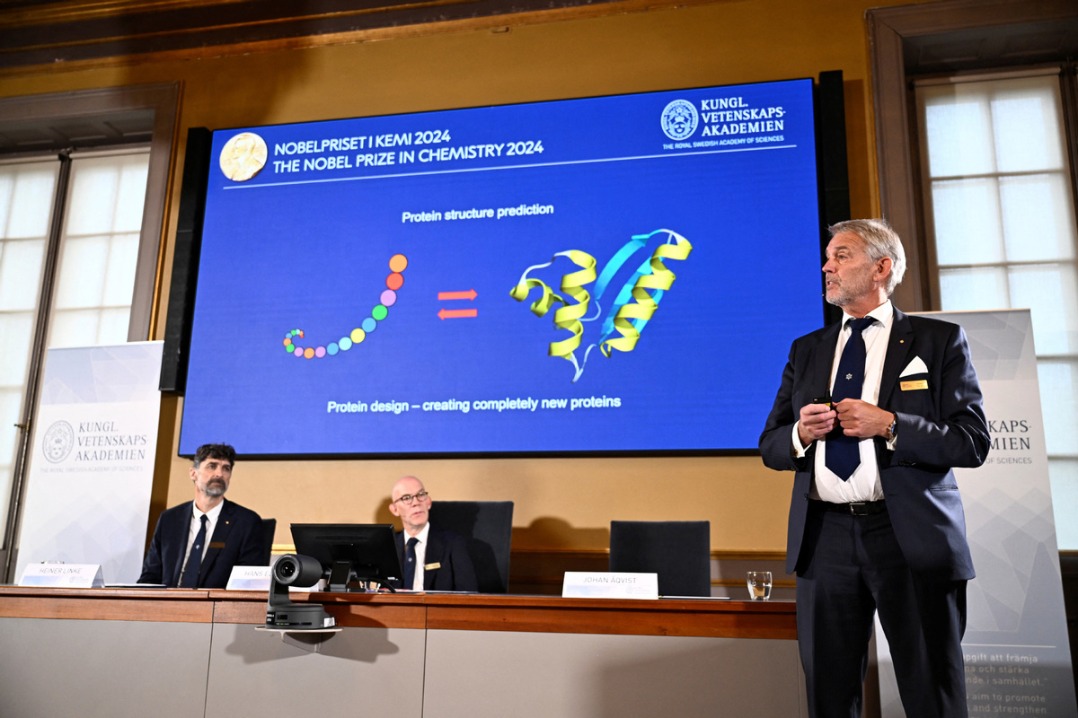Citi increases focus on clean power, green finance amid energy transition
By SHI JING in Shanghai | China Daily | Updated: 2024-10-10 09:38

During a weeklong visit to China last month, Cathy Shepherd, the global head of Citi's corporate banking for clean energy transition, met with clients across the geothermal, wind, solar and electric vehicle supply chains in multiple cities including Beijing, Shanghai and Hangzhou.
Shepherd's latest trip, coming after about 10 years, helped her better understand the "growth prospects "of the Chinese green market as well as "the depth of expertise and initiatives" of China's clean energy technology companies.
"China is really leading the world when it comes to investment in green energy technologies. I don't believe that we can have a global view without having a view from China," she said. "In order to continue to focus on the future of sustainability and low-carbon transition, I need to personally see what is happening in China."
As Shepherd discovered, Chinese companies from the traditional natural resources segment, including oil and gas, power, auto manufacturing, metals, steel and chemicals, comprised a major part of the ongoing energy transition. This trend also applies to the rest of the world.
However, she pointed out that China faces a bigger challenge in converting to a low-carbon future, given its history of generating power from coal. This provides many investment opportunities.
According to a guideline on advancing China's overall green transition, which was released by the State Council in August, non-fossil fuel energy consumption will account for about 25 percent of the country's total energy consumption by 2030.
Imminent progress
According to the International Energy Agency, the incremental renewable energy capacity installed in China last year outnumbered the rest of the world.
Data from the National Development and Reform Commission showed that the total installed capacity of wind and photovoltaic power generation reached 1.18 billion kilowatts by the end of June, surpassing the installed capacity of coal power.
The new energy storage and smart grid sectors are expected to benefit further from China's advances in building new power systems, said experts from Wanlian Securities.
Shepherd also agrees that China is a leader when it comes to investment in clean energy sources such as solar and wind power, as well as in the circular economy.
The strong presence of Chinese companies can help support the global transition to a low-carbon future, she said.
According to a green budgeting roadmap jointly released by the International Institute of Green Finance, which is part of the Central University of Finance and Economics, and the United Nations Development Programme, the total green and low-carbon investment value in China is estimated at 487 trillion yuan ($69 trillion) between 2021 and 2050.
Wan Jinsong, deputy head of the National Energy Administration, said in August that China invested about $676 billion in energy transition last year, overtaking all other countries in terms of such investment.
Targeting both multinational companies and local industry players, Citi provides services including ESG-themed advisory services, sustainability-linked loans and bonds, and green financing in China.
Within the treasury and trade solutions departments, Citi has come up with innovative ESG products and sustainable supply chain finance programs. It has also provided new commodity products for risk management, according to Shepherd.
As Chinese clean energy companies are actively tapping into the international market, Citi's advantage of a global network can help them when they broaden their remit outside of China, she said.
Within the Citi franchise, there is an increased focus in all of its regions around clean energy and green finance, which is reflected in its $1 trillion goal for sustainable finance announced four years ago.
According to the bank, it will direct the above amount by 2030 for financing and facilitating activity compatible with the United Nations' Sustainable Development Goals. Specifically, $500 billion will be dedicated to environmental finance and the rest to social transition and needs.
By April this year, it had financed and facilitated $441.2 billion toward the $1 trillion goal. Products and services contributing to this goal include financing and advisory services to help companies achieve their sustainability strategies, green, social and sustainable bonds, sustainable supply chain finance, sustainability-linked lending and investments, and sustainability-focused mergers and acquisitions.
While choosing the project to finance, Citi will assess whether the new technology can help decarbonize current industry players over the coming decades.
If it is a specific company, the criteria include strong corporate governance, a capable management team, and the ecosystem around the company, including their supply chain, sponsors and investors, according to Shepherd.
























